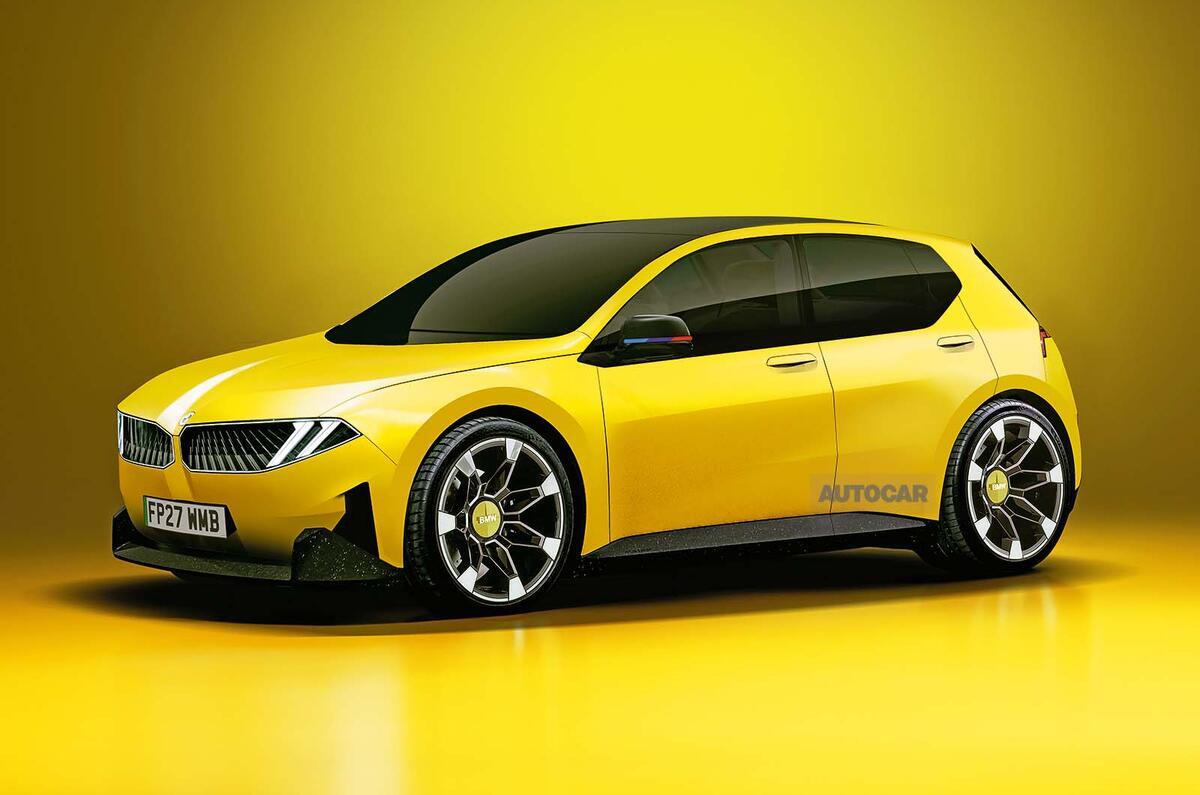The BMW 1 Series will return for a radically reinvented fourth generation within the next three years, as the German brand goes against its rivals in committing to its entry-level model.
As Mercedes-Benz prepares to retire the A-Class for good at the end of its current generation and Audi winds down production of the A1 and Q2, BMW says its smallest car remains an important part of its model range and a next-generation model will be the entry point into the new-gen Neue Klasse family.
BMW will launch this new EV line-up in September with the unveiling of the second-generation iX3 at the Munich motor show, before following that up soon after with the closely related next-generation 3 Series.
Prototypes for the Neue Klasse X5 have been spotted recently too, and the current 5 Series will receive a substantial design overhaul to bring it into line with its new siblings.
BMW hasn't officially confirmed plans for a new 1 Series, but Autocar previously reported it had been green-lit internally and now BMW product boss Bernd Körber has said the hatchback still has a crucial role to play in Munich.
"We are a global player and we cover the full portfolio; the entry models have a very important role to play for various reasons,” he told Autocar at the Shanghai motor show.
"First of all, take markets like Italy and France, where the 1 Series has shares of 20, 30, 40% in some regions: if you want to be a global player, you have to also take care of markets where the share of 1 Series is extremely high, otherwise you run the danger of losing them.”
Körber also said that offering a BMW model at a lower price point than the big-selling saloon and SUV models is important in the context of broadening the brand’s reach and diversifying its target market.
"The 1 Series is especially important for younger customers. If you want to keep the brand young, if you want to develop customers within your portfolio, the 1 Series is very important."
Finally, he said, remaining in the notoriously challenging and low-margin small car market will help BMW to be as competitive and efficient as possible across all its segments.
"You have to stay in the challenge, and it's a similar story with Mini. A lot of the capabilities in terms of 'how flexible are you?' and 'how cost-efficient are you?' you gain in competing in the small car segment. To retreat out of the small car segment means you get out of the challenge of being the most cost-efficient player.
"So for us it has the role of gross volume being relevant in all markets. But it also has a relevance for the brand in terms of younger customers and for the pressure we put on ourselves to find solutions that work in lower-cost segments."
Körber didn't give any details of the next 1 Series, but it’s expected to arrive in around 2028, with the current car having recently been updated and BMW planning to complete its Neue Klasse roll-out within the next three and a half years.
Like its rangemates, the next 1 Series is expected to be offered with a choice of petrol and electric powertrains - meaning it will continue to serve as a rival to traditional ICE competitors like the Volkswagen Golf and Audi A3 while also being put up against new contenders like the Cupra Born and Renault Megane E-Tech.








Join the debate
Add your comment
The 1 series, 2 series, 2 series Active Tourer, X1, x2 and Mini Countryman are all the same platform and made in the same factory. So in theory they could have done in this previous update. However sales of EV's are not good and the moment and their is still engineering work to create and i1 and thats why they are waiting. Secondly the 1 series with MHT has really low fuel consumption and low Car tax and 29% of BMW sales in the UK are the 1 series. The 1 and 2 series GC would have battery packaging problems that the X and Mini Countryman don't have.
All that was said by the executives of BMW are true, but with Mini and the 1 and X1 sharing platforms, they need the one to support the other.
As the article states, they want to be in the lower in off the market, but with the 1 and X1 shouldn’t their platform with most of the products current offered by Mini, the need the volume to keep costs down.